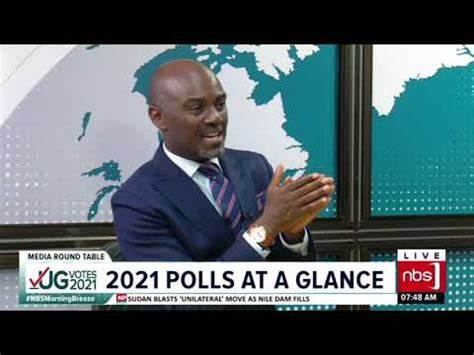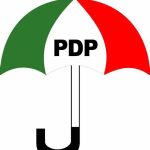One of the main gains of writing on this page each week is the volume of responses we get from readers. There are words of encouragement but there are also sharp interrogations of our writings. In the past three weeks, for example, I have received three text messages from a reader in Bauchi State, who feels that I have been too harsh in my criticism of the PDP and its leadership. He has argued, and that has been echoed by other respondents, that surely all cannot be bad with the PDP; or that the opposition parties should also be x-rayed.
My attitude is that Ido a critique of largest political party in our country. Its failings and weakness affect us all, for good and bad it cannot be ignored because it is largely the actions of the PDP, its leadership and government which will determine the sustainability of our nation’s democratic development. I know that there are genuine patriots in the PDP, who believe very sincerely that their party offers the platform of development for our country. I honestly respect those sentiments. However, I think that PDP has deviated from its original social democratic platform, especially under Obasanjo. It has also flouted Nigeria’s constitution, which explicitly forbids the concentration of wealth in the hands of a few individuals! Obasanjo bought line, hook and sinker, the neoliberal orthodoxy of privatization and it’s that ideological project of selling our national assets to a handful of cronies, which was the basis of my disagreement with the PDP as it became under Obasanjo. When President Yar’adua emerged and was said to have left-wing origins as a member of the PRP in the past, I felt somewhat hopeful, that there might be recognition of the need for policies that move away, from neoliberal policies. Unfortunately, that has not happened in two years. President Yar’adua tendered to re-enforce the platforms of capitalism without a human face. It is within this ideological prism that I have done my critique over the years really, without any prejudice to the persons of the individuals involved.
On the other hand, I have also argued for a much stronger, but clear-headed opposition in Nigeria, to counter the dominance of the PDP. I feel that an opposition which behaves differently; has a coherent set of ideas that it canvasses with the Nigerian people on everything from foreign policy, defense, economic and social policies, through to the world economic crises, etc., will help to strengthen the construction of democracy. In the first place, there will be an alternative platform for the Nigerian people to compare with the policies and programs of the ruling party. Even the PDP will rule better with such a scenario, because it knows there are alternative ideas; it would resemble what happened during the First and Second Republics, when Chief Awolowo and Dr Nnamdi Azikiwe could proffer alternative ideas to those of the NPC and later NPN. That’s what democratic development demands.
Unfortunately, Nigeria’s opposition has tended to behave like the PDP, ana m many instances even worse than it! The opposition parties don’t run their states in ways that help the people to see best political practices that can attract them in subsequent electoral contests. They are petty tyrannies that do not allow the flowering of democratic ideas; at least the ANPP and AC have not shown themselves to be any superior to their PDP nemesis. On the contrary, they seem to magnify the monstrous aspects of the PDP, which we criticize: lack of inner party democracy; no coherent agenda of development; corrupt use of state power and so on.
Opposition in many instances has been reduced to verbal attacks only on whatever the PDP does, without sustained organizational work on the ground to build an alternative political tradition, which is rooted in the needs of the Nigerian people. But for the tireless agitational presence and reactions of Lai Muhammed in Nigeria newspapers, one might think that there is really no party like the AC in existence in Nigeria Even its formation betrayed the inability of its founders to provide an alternative lesson in inner party democracy, when its leaders emerged just like those of the PDP they criticize with ‘consensus’ .
Last week, the ANPP’s former secretary Chief Moghul finally crossed over to join the PDP, underlining just how severe is the crisis that dogs the party. Yet in 1999, ANPP controlled nine states and could have, if it was serious, offered the examples which Nigerians might have rallied around. As we all know, the AD died on the platform of ethnic opportunism and its fall, like humpy dumpty, led to its splintering into irrelevant pieces. that could be picked off with ease by a rampaging PDP. Since the rules of politics also mirror those of warfare, PDP cannot be blamed for using its might, resources, greater appreciation of the essence of power, cunning and ruthlessness, to sweep the carpet from under the feet of a rag tag opposition. It cannot be expected to surrender power, just because its rule has become unpopular or that the opposition is shouting itself hoarse through Buba Galadima or the often lucid and logical analysis of Alhaji Balarabe Musa. The PDP will naturally be content to retain the advantages it has, while those who answer the name of opposition continue to lurch from one form of confusion to the other, like headless chickens!
Yes, the PDP needs to be worried about its loss of popularity, but when it analyses its opponents’ weaknesses, lack of organization, incompetence, lack of clarity and inability to close rank or their susceptibility to the lure of power and lucre, it can afford to express the confidence which some of its operatives expressed last week, about the meeting of leading opposition figures, to form a merge party. Of course, Prof Alkali of the PDP was right, when he said the PDP is the REAL MEGA PARTY!
The question to ask is if those opposition gentlemen are truly serious about doing something different; are they committed to building a new political platform, which has a new set of values different from the way they have run their parties so far and which will be superior to what they do in the states they control? Are they trying to build an alternative PDP; in ideas, style and mode in which case, Nigerians might just tell them not to worry? This is because it is better to stick with the PDP they know, than to fall into the hands of a counterfeit clone! Opposition politics is a very essential part of democracy and ought to be taken seriously and done with commitment and responsibility. It is not a platform of subversion, and it should also not be demonized. If there is a genuine effort to build a ‘mega party’ of ideas, new ways of day things and able to offer a constructive alternative to the electorate, then Nigeria’s democracy will be better, because even the PDP will take note and buckle up to do better for the Nigerian people.
The Labour Party in Britain has been accused severally in the past, of appropriating the political ideas of the conservative opposition. But if ideas from the opposition help to build the country, they show how ruling party and opposition become locked in a healthy rivalry for the progress of society. Nigeria’s opposition will have to work better otherwise, PDP will remain invisible. And that will not help our democracy, and neither will it help the PDP! It is the people that suffer, when the ruling party-opposition duality fails to work without damaging that essential tension of struggle for power in society!
Political journalism offers opportunities of witnessing from close quarters, the vagaries of opposition politics. In a winner-takes-all setting like Nigeria’s, opposition is an island of frustration and anger; and being left out, can lead to the desparacy which those who rule misinterpreted as schemes to subvert the system. In recent days, the PDP has been ratcheting up about schemes of subversion by those who lost out in the game of power. On the other hand, the danger of being ship-wrecked on the island of opposition has also made members of the opposition very easy to manipulate, neutralize and co-opt, by the more powerful ruling party in Nigeria, just as elsewhere, around the world. It is all part of the peculiar morality of political struggle.
The Nigerian opposition has not been effective in the years since 1999 and has not shown the aptitude. Its attitude, policies and style have all tended to be like the PDP which it wants to replace. If the Nigerian people do not see a qualitative difference in the parties, they will have no reason to reject the PDP for an opposition that huffs and puffs on newspapers but is not fundamentally different. Our democracy is fundamentally loser where no vigorous opposition exists to put the ruling party on its toes for the improvement of its attitude governance.


